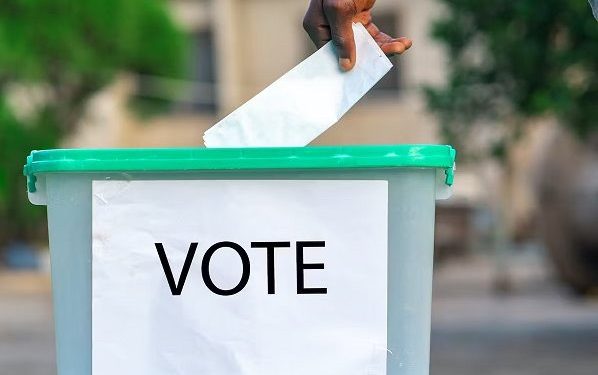In a society that values democratic ideals, the monetisation of politics puts into question the fundamental premise of a fair and equal political process. Campaigns fuelled by money, rather than intellectual conviction or public interest, frequently undermine election integrity and democratic standards.
In Ghana, the monetisation of politics may even pose a danger to the rule of law. People can suffer a variety of negative effects from politics as a business. Exclusion of a qualified candidate: When politics is extensively funded, it is harder for candidates without substantial financial resources to compete.
By rejecting candidates who have the requisite qualifications and serious intents, this may reduce the options accessible to voters. The monetisation of politics might make it harder for underfunded politicians to win office. A small pool of applicants from various backgrounds may therefore be deterred from standing for office.
This could deter citizens from participating in politics and result in a less dynamic democracy by lowering the overall competitiveness of elections and restricting the options accessible to voters. Overly commercialised politics frequently advance the agenda of the rich and powerful. As a result, decisions and policies could be made that largely serve the interests of a small elite rather than taking the larger population's needs and concerns into consideration. Some groups may feel neglected or excluded as a result, which can result in inequality and marginalisation. A heavily monetarised political system may see an increase in the prevalence of corrupt and corrupting political behaviour.
Richly sponsored candidates might try to recoup their costs while serving in government, which could lead to unethical behaviour, partiality, and the misuse of tax resources. The legitimacy of elected leaders may be questioned as a result, and public support for the democratic system may decline. The political system may become more dishonest and prone to unethical behaviour as a result of monetisation.
To get money or keep financial backing, candidates may feel pressured to partake in bribery, favouritism, or other corrupt activities. As a result, the credibility of political figures and institutions may be in doubt, which may lead to a lack of accountability and the misappropriation of public funds.
Social differences and inequality could become more pronounced as a result of the monetisation of politics. Candidates that rely on personal wealth or financial backing may be less receptive to the interests and concerns of underprivileged groups since their campaign priorities are defined by those who sponsor them. Socioeconomic disparities might get worse as a result of a possible decline in inclusive democratic representation.
When money has a significant impact on politics, decisions about public policy may be influenced by the interests of individuals who have donated money. This could lead to legislation that benefits specific businesses, industries, or wealthy individuals, hence escalating economic and social inequality. There is a risk that not everyone will have access to fundamental opportunities and services, worsening disadvantage and impeding social mobility, due to limited policy goals.
When money dominates politics, campaigns frequently lay a greater emphasis on fundraising than on developing and communicating substantive policy proposals.
This could result in a political discourse that is only shallow and a general lack of interest in important social concerns. Voters find it more challenging to make decisions that are well-informed by political beliefs and societal goals. A political system that the public feels is highly commercialised might harm public trust.
Politicians face the risk of losing the public's trust and coming out as solely concerned with themselves and not the needs of the entire community. This may result in people losing interest in democracy and becoming uncaring, among other things.
People may lose faith in democratic systems if it appears that money has an excessive impact on politics. People may feel hopeless, callous, and as like their votes and voices don't really count if they believe a wealthy elite dominates politics. As a result, it's likely that public engagement would be limited and the democratic system's credibility would deteriorate.
Addressing the negative consequences of political commercialisation requires promoting openness in campaign financing, strengthening anti-corruption laws, and leveling the playing field for candidates from all socioeconomic backgrounds. Stricter campaign finance laws, increased anti-corruption enforcement, and programmes to promote transparency and accountability in political funding are all necessary in light of these risks.
By focusing on issue-based campaigns, civic education, and creating a level playing field for all candidates, the detrimental impacts of political commercialisation on Ghana's democracy can also be lessened.
Furthermore, increasing transparency and variety in politics can help balance out the power of financial behemoths, ensuring that all citizens' viewpoints and interests are effectively represented. Citizens, civil society organisations, and government officials must collaborate to advocate for reforms that would restore Ghana's democracy's integrity and restrict the undue influence of money in politics.
Evans Mawunyo Tsikata BBA, LLB, Med, LLM
Latest Stories
-
Inlaks strengthens leadership team with key appointments to drive growth across sub-Saharan Africa
4 minutes -
Green Financing: What Ghana’s Eco-startups need to know
9 minutes -
CHAN Qualifiers: Amoah confident of beating Nigeria
9 minutes -
Governments deprioritising health spending – WHO
16 minutes -
Lordina Foundation brings Christmas joy to orphans
16 minutes -
Yvonne Chaka Chaka to headline ‘The African Festival’ this December
16 minutes -
Nigerian man promised pardon after 10 years on death row for stealing hens
20 minutes -
MGA Foundation deepens support for Potter’s Village
41 minutes -
Galamsey: One dead, 3 injured as pit collapses at Nkonteng
1 hour -
Man, 54, charged for beating wife to death with iron rod
1 hour -
MedDropBox donates to UG Medical Centre
1 hour -
Afenyo-Markin urges patience for incoming government
1 hour -
Case challenging Anti-LGBTQ bill constitutionally was premature – Foh Amoaning
2 hours -
Fifi Kwetey: An unstoppable political maestro of our time
2 hours -
Volta Regional ECG Manager assures residents of a bright Christmas
2 hours

